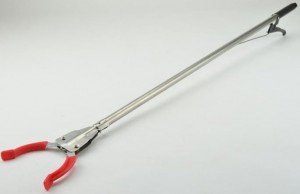Shoulder pain can affect much more than just our comfort. It can limit our ability to pick up our children, carry groceries, or even reach for something on a high shelf. If you’ve been struggling with nagging shoulder pain, there’s a strong possibility it may be due...
A stress fracture is a small crack within a bone. However, unlike acute fractures, which occur from a sudden injury, stress fractures gradually develop over time and are common among athletes, runners, and individuals with physically demanding lifestyles. These tiny,...
Tendons are tough, fibrous tissues that connect muscle to bone and play a critical role in our movement, from helping us swing a tennis racket to allowing us to lift groceries or climb the stairs. But for all their strength and flexibility, tendons are also...
Preparing for Back Surgery

As a team, you and your orthopaedic doctor have determined that back surgery is the next step in your care plan. So, now what? Preparing yourself ahead of time, both physically and psychologically, will make the procedure and the transition back home smoother and more comfortable.
Preoperative Psychological Preparation
Preparing yourself mentally for surgery is an essential first step in getting ready for surgery. Being prepared will help relieve postoperative anxiety and better prepare you for recovery.
- Ask your doctor for additional information about the procedure and learn as much as you can about the procedure itself.
- Read as much information as possible about the recovery process so you know what to expect after surgery.
- Make a list of questions you still have about the procedure or recovery and meet with your doctor prior to surgery.
- Talk with family and friends about the procedure and create a support system. Arrange for a close relative or friend to go with you and be there when the procedure is finished.
- Discuss your fears and concerns with a counselor, therapist or other mental health professional. They can help with stress or anxiety management as well as provide additional coping strategies to help reduce your fears.
Physical Preparation for Postoperative Recovery
Advanced preparation of your home and business matters will make the transition home after surgery smoother and reduce stress during your recovery.
- Arrange for time off from work, allowing sufficient time for recovery based on your doctor’s recommendations. Have all the paperwork completed and approved before your scheduled surgery.
- Make arrangements with a trusted friend or family member to help with errands and basic household chores.
- Prepare food ahead of time that can be portioned and placed in the freezer for easy, quick meals. Stock the freezer and pantry with easy to make meals such as canned soup or frozen entrees that require minimal preparation.
- Move furniture, if necessary, to make it easier to move around without obstacles. If possible, provide straight paths to areas such as the bathroom and bedroom.
- Arrange necessary household items – such as food, dishes or paper plates, personal care items, clothing, books or magazines, the television remote, medications and other essential items – on a counter or table within easy reach. This makes items easily accessible and reduces the need to bend or reach for items.
- Obtain a claw grabber that can help you reach items that fall on the floor or that are in hard to reach places.
Additional preparation may be helpful depending on your surgical procedure, anticipated recovery time and doctor recommendations. If you anticipate having difficulty bending to sit on the toilet, a toilet seat riser may be helpful to minimize the amount of bending required to get on and off the toilet.
Lowering or raising your bed may also be helpful if you have difficulty getting in or out of bed. Your doctor may recommend additional equipment or assistive devices to help you during recovery. Check with your doctor prior to surgery for any additional recommendations.

